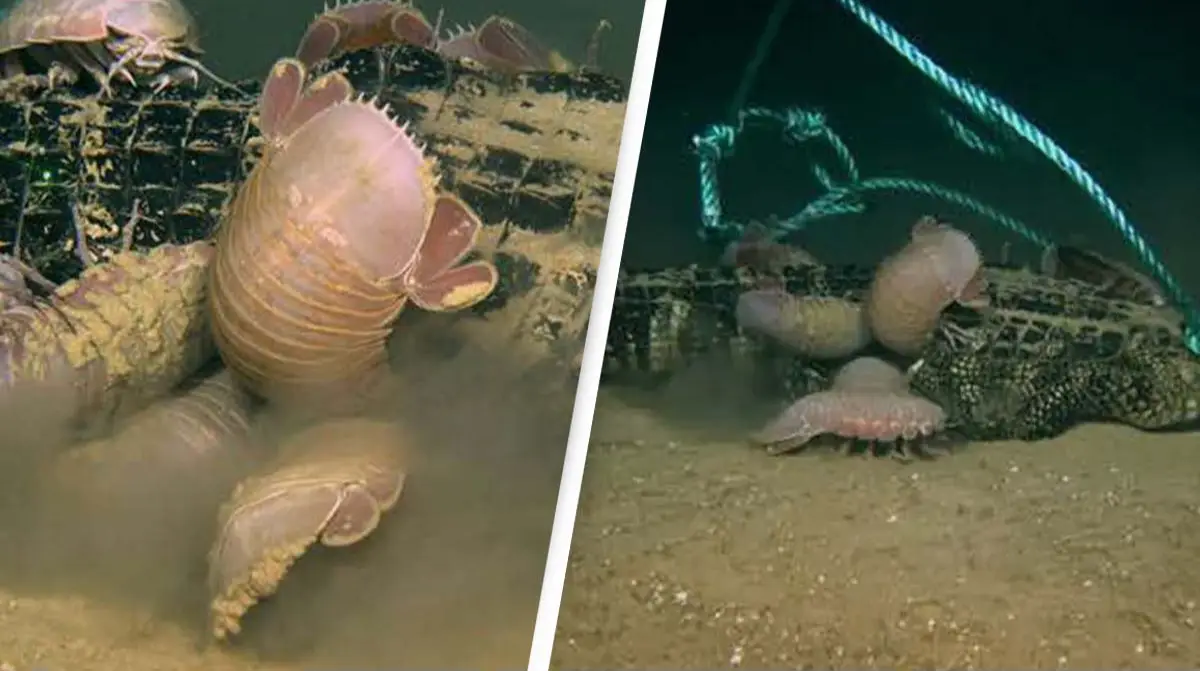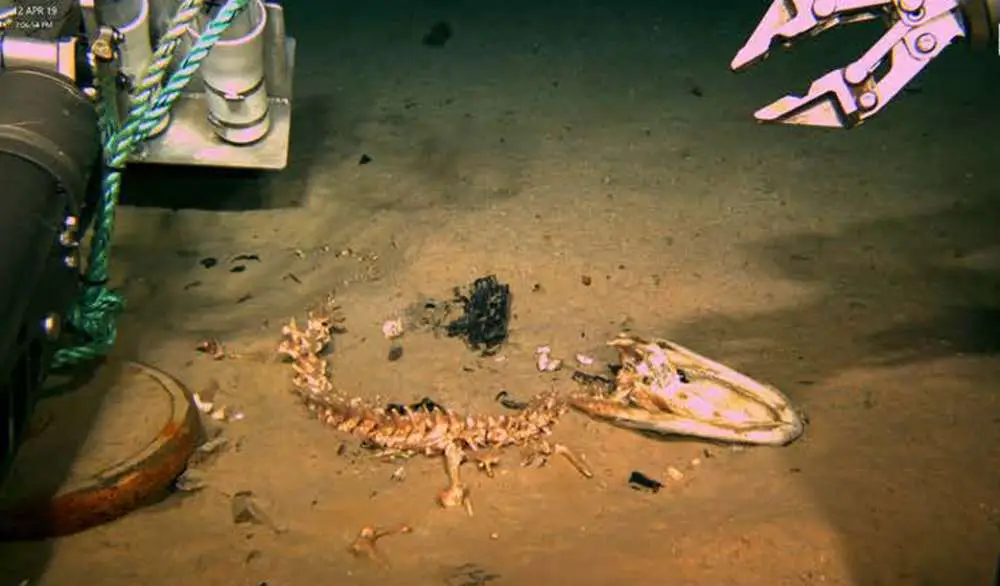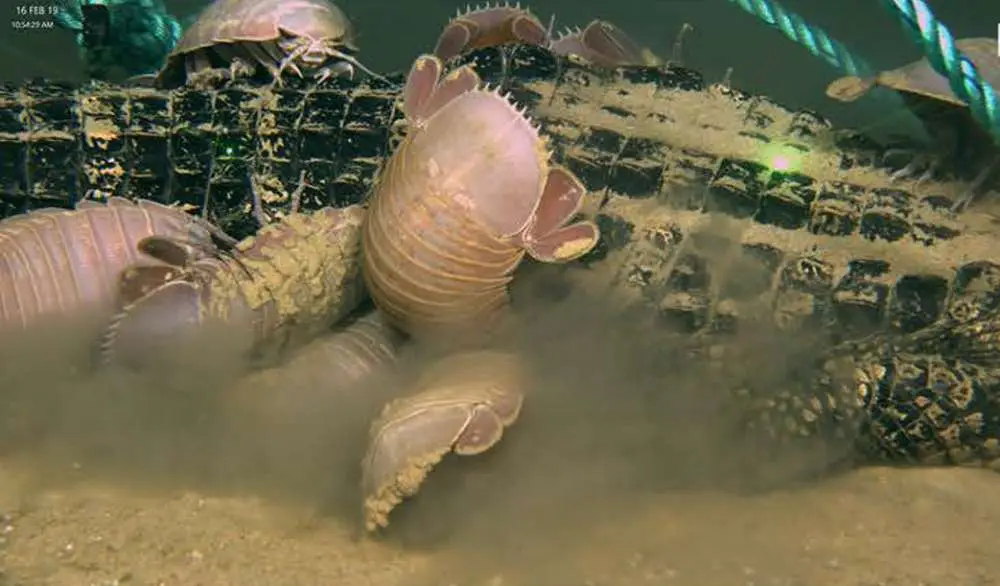
Scientists have discovered a new bone-eating animal after dropping a dead alligator onto the sea floor.
Studying the inhabitants of the deep sea is a notoriously difficult feat.
Aside from the enormous environmental factors such as the high pressure of the water, the sea is also really, really big.
That makes even finding sealife down there a challenge in itself.
Advert
A common technique that scientists use is to simply drop a big load of bait onto the ocean floor and wait to see what turns up.
It might sound counterintuitive, but this is actually not an uncommon way for deep sea creatures to come by food.
Though in fairness, this is not usually alligators.
When whales die, their carcass floats at the surface for a time, being set upon by scavenging sharks before eventually decomposition causes it to lose buoyancy and sink to the bottom.
There, the 'whale fall' becomes a bonanza for the creatures of the deep.
But in this case scientists wanted to see what would happen if they used a very different animal to a whale - an alligator.

They used a gator as the location in the Gulf of Mexico made it possible that the reptiles might swim out of river estuaries into the ocean.
One of the study authors, River Dixon, explained that they wanted to observe whether the alligator's tough hide might get in the way of scavengers.
Spoiler alert - it didn't.
Dixon told IFLScience: “There is actually really good evidence that alligators make it out into the gulf offshore in major flooding events especially because we have two major river outlets here.
“So, we had good evidence that there were alligators out there but we didn’t know what that meant for the deep sea.”
The creatures that turned up were giant isopods. These look like the woodlice that you find on land, because they are actually related.

But foot-long woodlice took less than a day to chew through the alligator's tough skin, before eating the alligator from the inside out.
A second alligator however saw researchers find a new species altogether.
This was a kind of worm which actually eats bones, called a 'Zombie Worm'. This was the first time the species has been seen in the Gulf of Mexico.
As for a third alligator, this was carried off by a mysterious creature. Given the bite force required to free it, it was likely to be either a Greenland Shark or Six Gill Shark.
The scarcity of resources in the deep ocean means that creatures there must get all the nutrients they can, even if it means extracting it from bare bones.
Topics: News, World News, Animals, Science
